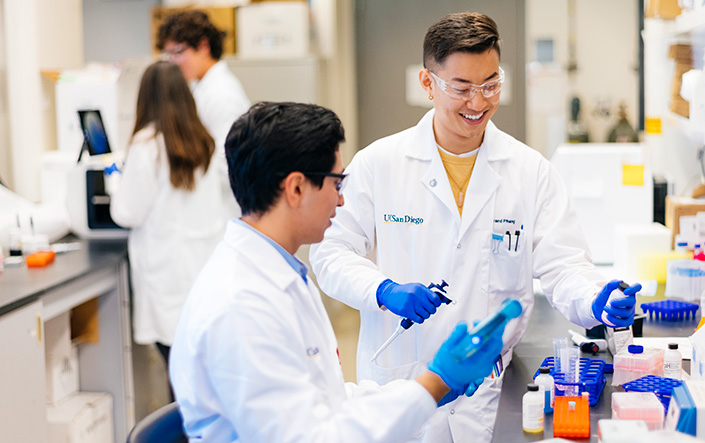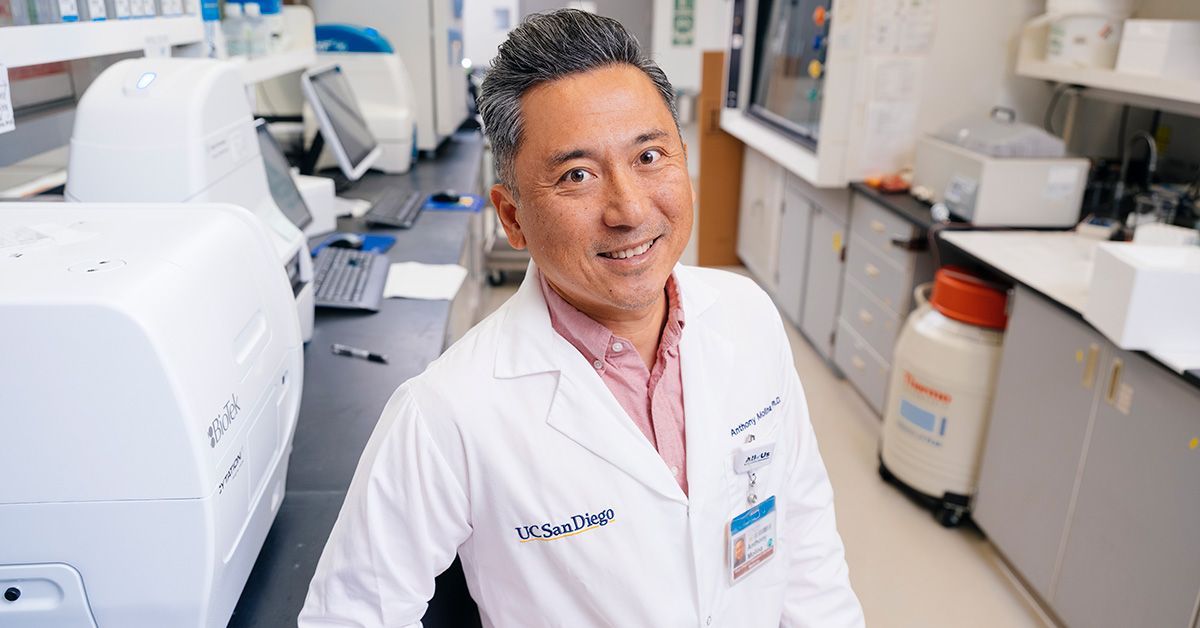Major Contract Funds Study on Drivers of Resilience Among Older Adults
Anthony J.A. Molina of UC San Diego School of Medicine leads multi-disciplinary project selected to receive funding from Wellcome Leap’s $60 million Dynamic Resilience program
Story by:
Published Date
Article Content
A multi-disciplinary team of researchers at the University of California San Diego, led by Anthony J.A. Molina, a professor in the Department of Medicine, has launched a new project to better understand why older adults who share the same age and similar health characteristics can have vastly different trajectories following stress events such as fall-related injuries.
This project is funded through a contract with Wellcome Leap’s $60 million Dynamic Resilience program, which is jointly funded with Temasek Trust. The Dynamic Resilience program seeks to identify and validate markers of health resilience that can be used to develop and test preventative interventions that support resilience in people at risk of deterioration after a stress event.
According to Wellcome Leap, a global network dedicated to accelerating breakthroughs in human health, reducing frailty progression by 25% has the potential to prevent 71,000 hospitalizations and 8,000 deaths annually from falls alone in the United States, and to benefit 87 million older adults across the world.
“Healthy aging is often defined by the avoidance of disease and the avoidance of functional decline,” said Molina. “I think a better understanding of healthy aging also takes into account that we can’t avoid everything—and our ability to bounce back after a physiological stress is also a critical aspect of healthy aging."

Molina, who is the Research Chief in the Division of Geriatrics, Gerontology and Palliative Care and the Scientific Director of the Stein Institute for Research on Aging, leads one of 14 performer teams—and the only academic team based in the U.S.—selected for the Dynamic Resilience program. His lab at UC San Diego focuses on understanding how mitochondrial function drives healthy aging and plays a role in the development of many common age-related conditions. Through this program, Molina and his team join researchers from Singapore, Kenya, Chile and beyond as part of a concerted effort to extend the health spans of individuals around the globe.
“We feel incredibly fortunate to have been selected by Wellcome Leap for the Dynamic Resilience program,” said Molina. “What excites me is not just that we will have an opportunity to significantly expand our team’s efforts to understand and improve human resilience, but also the fact that we will be collaborating closely with an international team of experts who share similar and complementary scientific and clinical goals.”

The project led by Molina is titled “Development and Real World Validation of Blood-Based, Multi-Omic, Universal Signatures of Resilience,” and brings together experts from various disciplines and specialties across UC San Diego’s $1.76 billion research enterprise to form what Molina refers to as a “dream team.” Together, they will work to develop and validate blood-based signatures of universal resilience that are applicable to common stress events that impact older adults.
The program’s co-principal investigators are Rob Knight, founding director of the Center for Microbiome Innovation and professor of pediatrics and computer science & engineering; Theodore Chan, professor and chair of the Department of Emergency Medicine; Pieter Dorrestein, a professor in the Skaggs School of Pharmacy and Pharmaceutical Sciences and the Departments of Pharmacology and Pediatrics, and co-director of the Institute for Metabolomics Medicine; and David Gonzalez, an associate professor in the Skaggs School of Pharmacy and Pharmaceutical Sciences and the Department of Pharmacology, and founder and director for the Collaborative Center of Multiplexing Proteomics.
This study will be conducted in collaboration with UC San Diego’s Geriatrics Emergency Department (GED), California’s first Gold Level Accredited GED, led by Dr. Chan. This unique clinical setting provides an innovative research infrastructure for examining and understanding the biological factors driving health trajectories following stress events that are commonly experienced by older adults. Initial studies will focus on recovery after fall-related injuries, and will eventually expand to other emergencies that can negatively impact functional independence.
The research team will also leverage UC San Diego’s rich biospecimen and data repositories, including the Rancho Bernardo Study, one of the longest running population-based observational cohort studies in existence.
With such resources, Molina and his colleagues are equipped to define resilience across multiple domains by examining long-term trajectories of physical, cognitive and sensory abilities, as well as the accumulation of co-morbidities over time. Importantly, this project will leverage the team’s interdisciplinary expertise in multi-omics approaches and state-of-the-art data science techniques to identify reliable markers of universal human resilience that may one day be used to better personalize health care for older adults.
Share This:
Stay in the Know
Keep up with all the latest from UC San Diego. Subscribe to the newsletter today.




